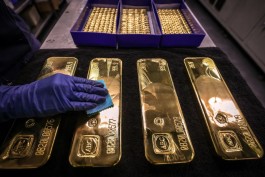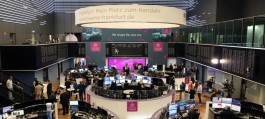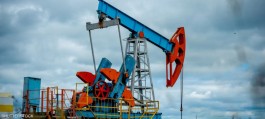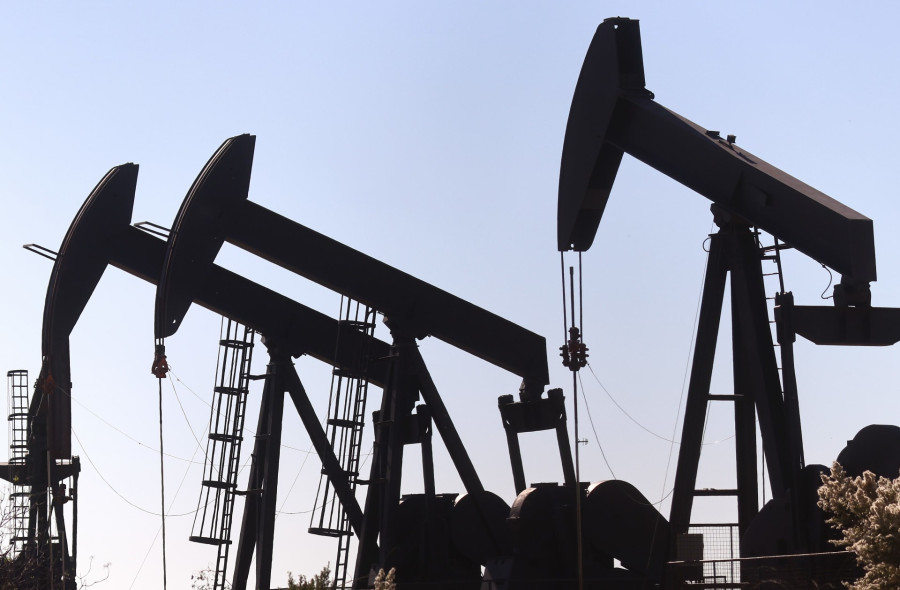The OPEC+ alliance still finds that the best response to the growing uncertainty in the oil market is to maintain stable supplies.
When a banking crisis last month pushed London crude futures to a 15-month low near $70 a barrel, speculation swirled that Saudi Arabia and its partners might intervene with fresh production cuts to support the market.
But despite all the turmoil; OPEC+ is showing all signs of consolidation.
The Saudis have said publicly that the 23-nation alliance must keep production levels stable throughout the year. Delegates privately expect that when the core members convene the Monitoring Committee meeting on Monday, they will not make any adjustments.
Concerns about financial contagion are receding and focus is once again on China's growing demand for oil, along with pressure on Russian production since its invasion of Ukraine. Crude oil futures have rebounded sharply to nearly $80 a barrel, boosting revenues for Riyadh and its allies.
“OPEC can intervene in the markets when they feel there is an oversupply,” said Marco Dunand, CEO of energy trader Mercuria Group.
At the beginning of the year and widely in the petroleum industry; Confidence in the return of prices to $100 per barrel declined, as Russian exports proved resilient against international sanctions. It seems that the global supply will achieve a surplus in the current quarter.
China's new modest economic growth target of 5% also dampened optimism among oil investors. And Goldman Sachs Group, perhaps the most enthusiastic on Wall Street about oil price optimism, has scaled back its forecast of returning to triple figures this year.
The repercussions from the collapse of Silicon Valley and the break-up of Credit Suisse have further bleaked the outlook for crude oil.
Torque test
There was speculation that the price slump could test the resolve of Saudi Energy Minister Prince Abdulaziz bin Salman, who said last month that production targets set when OPEC+ cut production in late 2022 would stick to the end of the year.
That speculation diminished as crude prices subsequently rebounded.
Helima Croft, head of commodity strategy at RBC Capital Markets, said: “It is very likely that the coalition leadership will decide there is no need to exercise the option of an additional cut, but we may not see the group remaining on 'autopilot’ until the end of the year if oil deteriorates.”
Major oil traders such as Trafigura Group and Gunvor Group do not expect a further decline in prices, but rather a rise in the second half of 2023 as China fully emerges from the repercussions of the years of Covid closures. While Goldman Sachs eased its initial oil price forecasts; He doubled down on his recommendations for a commodity boom.
Global oil demand is still on track to increase by 2 million barrels per day this year to a record 102 million barrels per day, sending the market into deficit this summer, according to the International Energy Agency. The strong outlook for oil consumption comes in parallel with tight global supplies.
Russia, a member of the OPEC+ alliance, announced a production cut of 500,000 barrels per day this month in response to the sanctions, promising to keep the cuts in place until June.
European countries have banned Russian barrels and only provide facilitation services to countries that buy shipments for less than $60 a barrel.
And while Russia's oil industry has so far defied expectations of a collapse by diverting crude flows into Asia, there are signs of a slowdown in trade, with fuel shipments floating off the coasts of Europe, Africa and Latin America.
Iraq, a member of the Organization of the Petroleum Exporting Countries, is feeling more turbulent, as a renewed legal row between Baghdad and the country's northern Kurdish region has led to the seizure of about 400,000 barrels per day that normally flow through Turkey to international markets, ahead of announcing on Saturday that a deal had been reached. Tentative to resume exports through Turkey.
When the OPEC+ alliance meets in early June to review production levels for the second half, it may have an opportunity to open the taps. Until then; Ministers are likely to maintain a wait-and-see approach, according to Bob McNally, president of the Rapidan Energy Group and a former White House official.







































